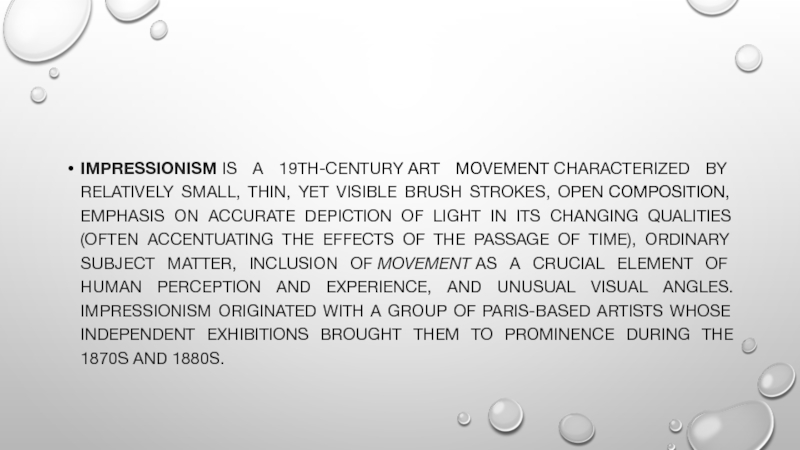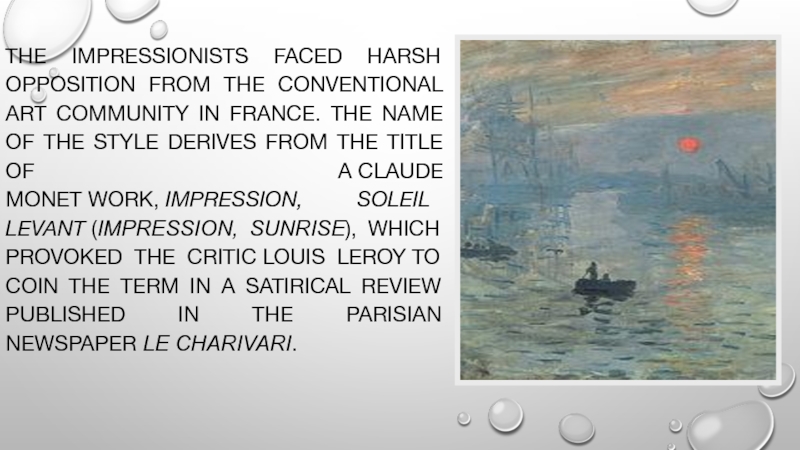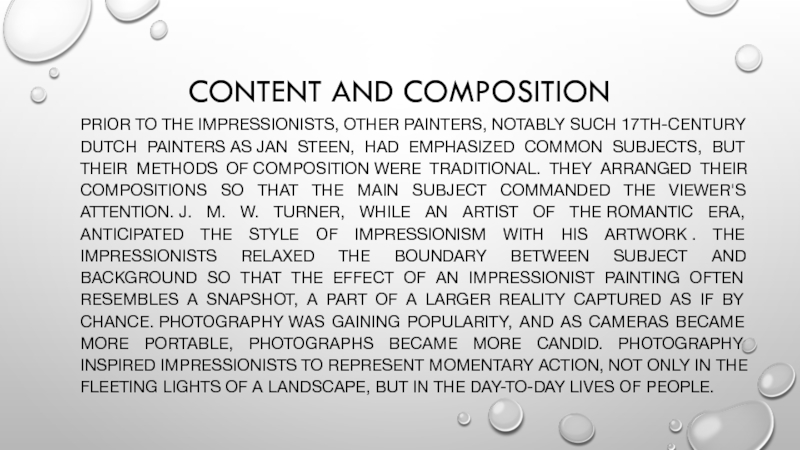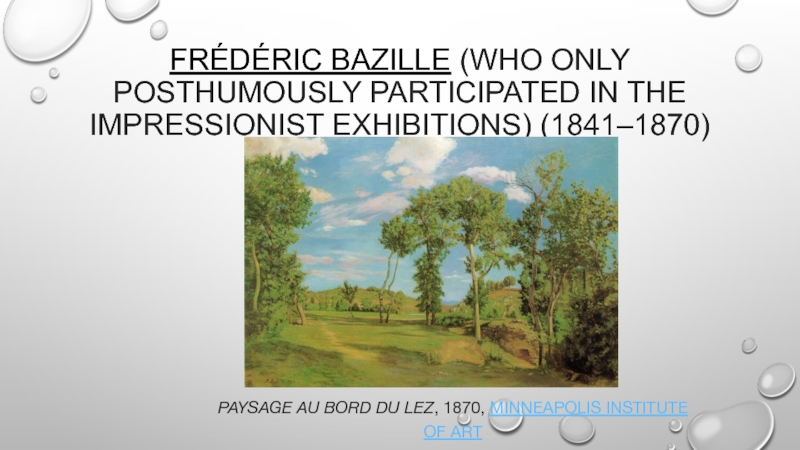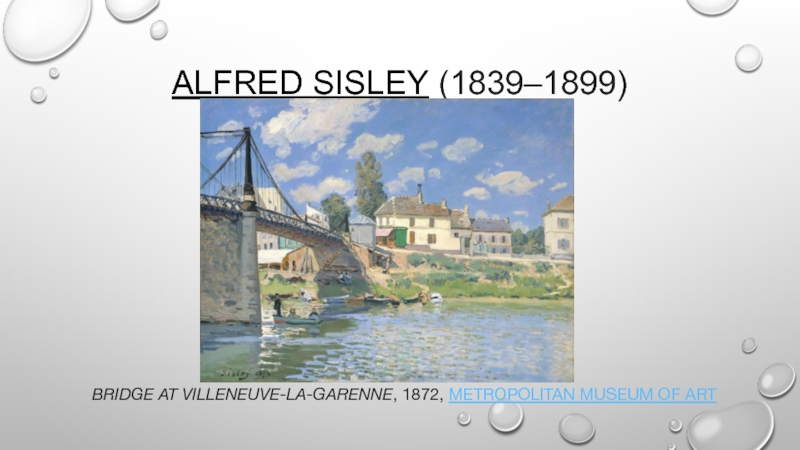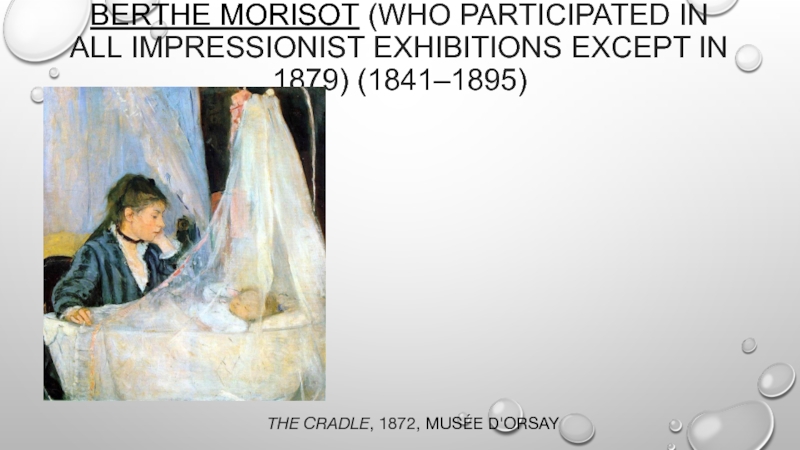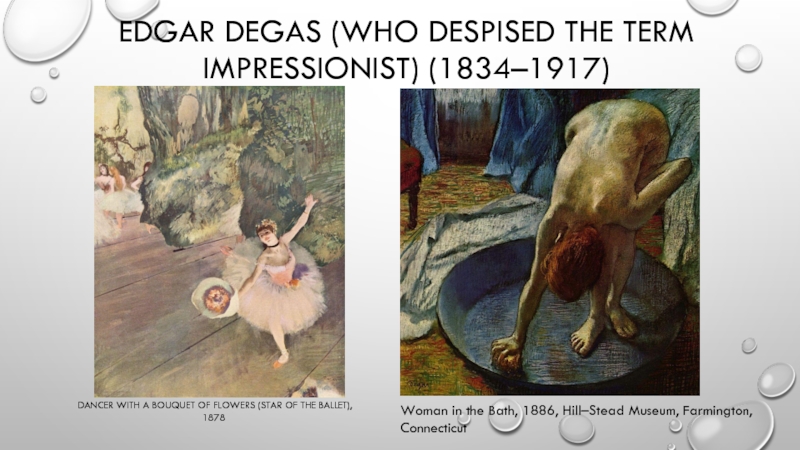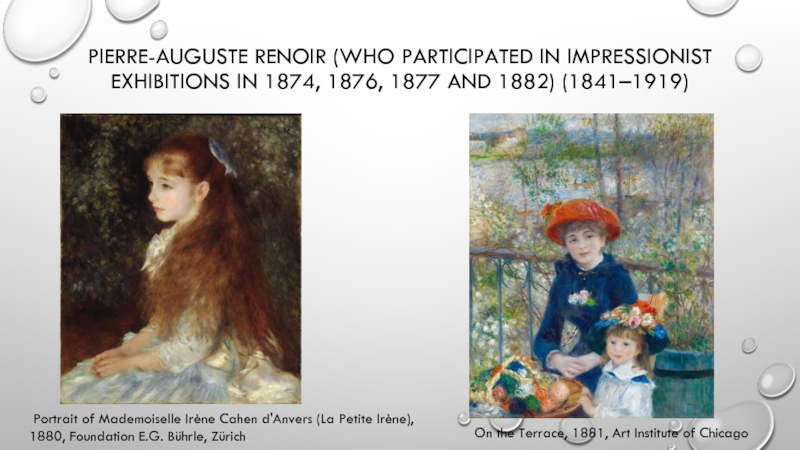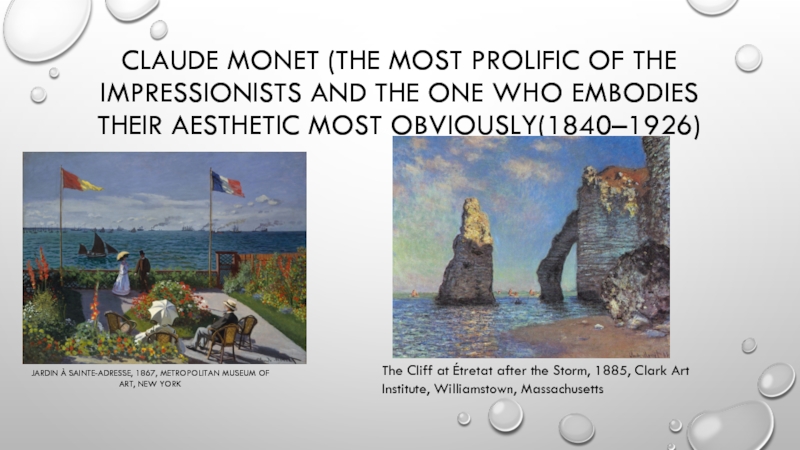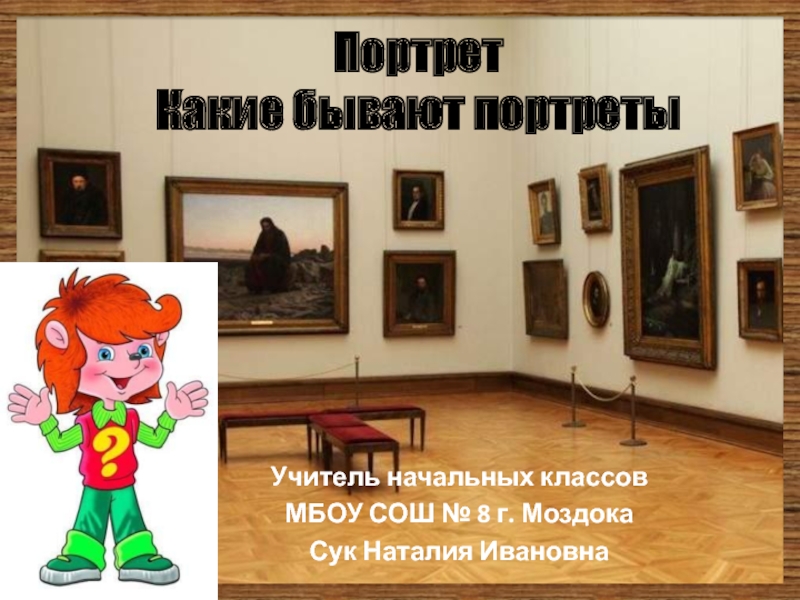Разделы презентаций
- Разное
- Английский язык
- Астрономия
- Алгебра
- Биология
- География
- Геометрия
- Детские презентации
- Информатика
- История
- Литература
- Математика
- Медицина
- Менеджмент
- Музыка
- МХК
- Немецкий язык
- ОБЖ
- Обществознание
- Окружающий мир
- Педагогика
- Русский язык
- Технология
- Физика
- Философия
- Химия
- Шаблоны, картинки для презентаций
- Экология
- Экономика
- Юриспруденция
Impressionism
Содержание
- 1. Impressionism
- 2. Impressionism is a 19th-century art movement characterized by relatively small,
- 3. The Impressionists faced harsh opposition from the
- 4. Content and compositionPrior to the Impressionists, other
- 5. Frédéric Bazille (who only posthumously participated in the
- 6. Alfred Sisley (1839–1899)Bridge at Villeneuve-la-Garenne, 1872, Metropolitan Museum of Art
- 7. Berthe Morisot (who participated in all Impressionist exhibitions except in 1879) (1841–1895)The Cradle, 1872, Musée d'Orsay
- 8. Edgar Degas (who despised the term Impressionist)
- 9. Pierre-Auguste Renoir (who participated in Impressionist exhibitions
- 10. Claude Monet (the most prolific of the
- 11. Скачать презентанцию
Impressionism is a 19th-century art movement characterized by relatively small, thin, yet visible brush strokes, open composition, emphasis on accurate depiction of light in its changing qualities (often accentuating the effects of the passage of
Слайды и текст этой презентации
Слайд 2Impressionism is a 19th-century art movement characterized by relatively small, thin, yet visible
Слайд 3The Impressionists faced harsh opposition from the conventional art community
in France. The name of the style derives from the
title of a Claude Monet work, Impression, soleil levant (Impression, Sunrise), which provoked the critic Louis Leroy to coin the term in a satirical review published in the Parisian newspaper Le Charivari.Слайд 4Content and composition
Prior to the Impressionists, other painters, notably such 17th-century
Dutch painters as Jan Steen, had emphasized common subjects, but their methods
of composition were traditional. They arranged their compositions so that the main subject commanded the viewer's attention. J. M. W. Turner, while an artist of the Romantic era, anticipated the style of impressionism with his artwork . The Impressionists relaxed the boundary between subject and background so that the effect of an Impressionist painting often resembles a snapshot, a part of a larger reality captured as if by chance. Photography was gaining popularity, and as cameras became more portable, photographs became more candid. Photography inspired Impressionists to represent momentary action, not only in the fleeting lights of a landscape, but in the day-to-day lives of people.Слайд 5Frédéric Bazille (who only posthumously participated in the Impressionist exhibitions) (1841–1870)
Paysage
au bord du Lez, 1870, Minneapolis Institute of Art
Слайд 7Berthe Morisot (who participated in all Impressionist exhibitions except in 1879)
(1841–1895)
The Cradle, 1872, Musée d'Orsay
Слайд 8Edgar Degas (who despised the term Impressionist) (1834–1917)
Dancer with
a Bouquet of Flowers (Star of the Ballet), 1878
Woman in
the Bath, 1886, Hill–Stead Museum, Farmington, ConnecticutСлайд 9Pierre-Auguste Renoir (who participated in Impressionist exhibitions in 1874, 1876,
1877 and 1882) (1841–1919)
On the Terrace, 1881, Art Institute of
Chicago Portrait of Mademoiselle Irène Cahen d'Anvers (La Petite Irène), 1880, Foundation E.G. Bührle, Zürich
Слайд 10Claude Monet (the most prolific of the Impressionists and the
one who embodies their aesthetic most obviously(1840–1926)
Jardin à Sainte-Adresse, 1867,
Metropolitan Museum of Art, New YorkThe Cliff at Étretat after the Storm, 1885, Clark Art Institute, Williamstown, Massachusetts

